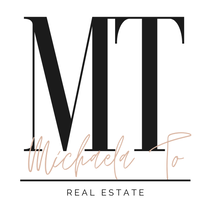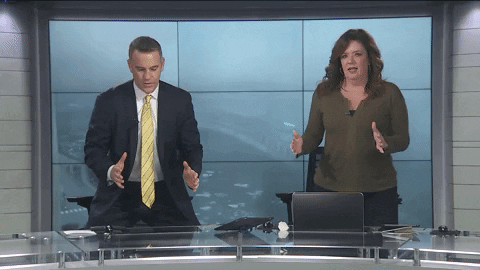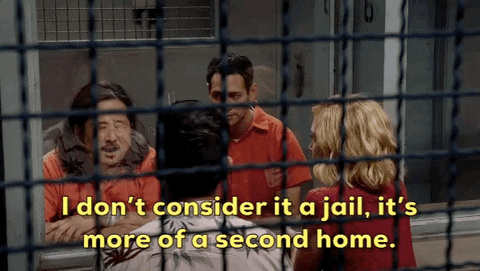|
COVID-19 has completely changed the real estate game for buyers and renters alike. These days, buyers are seeking homes outside of urban areas and big cities now that working from home is the new norm, while renters are seeing prices declining. Housing that requires people to be in close contact with strangers is now at a disadvantage. Buildings with elevators are somewhat of a no-no for folks. Who wants to share a small enclosed space with strangers at a time like this, right?
But it likely won’t be this way forever. The prediction is that as a coronavirus vaccine becomes available, some of these changes will shift and the desire for urban housing will go up again. Until then, you can expect single-family homes and multifamily units out in the ‘burbs to remain in high demand. Zoom Town? Never heard of her—until now. This term has popped up recently to describe locations where real estate is booming due to the uptick of remote work during this pandemic. Prime example? Truckee, an outdoorsy person’s dream town just northwest of Lake Tahoe. Skiing, hiking, mountains, lakes, great restaurants, an emerging art scene, all at 1/2 of the price of a home in San Francisco?? No wonder so many people are snatching up homes out there. But of course this isn’t happening in Truckee alone. National home prices are up 8% from this time last year, proving that there is still a huge demand for homes all over the country.
What has become abundantly clear is that at this point there are “two Americas”: a booming side filled with folks who remain gainfully employed and have the opportunity to take advantage of low interest rates, and a gloomy side, where nearly 3 million adults have moved back in with their parents and almost 30 million Americans are on unemployment benefits. Despite the ongoing health crisis, rising unemployment, and battered economy, residential real estate is still on the rise. Why and how is this even happening?? This new phenomenon, coined by the CEO of Zillow, is called "The Great Reshuffling."
With millions of people making major housing changes, from upsizing to downsizing, being closer to family and further from the office, this pandemic is causing us to rethink and reshape the way we live and work. Those who plan to WFH forever are moving away from urban centers, where demand is far outstripping supply. Buyers want to move to larger spaces, while current homeowners are hanging onto their homes amid all the uncertainty, limiting available inventory. Instead of LOCATION LOCATION LOCATION, the new real estate mantra seems to be HOUSE HOUSE HOUSE (although that doesn't roll off the tongue quite as easily). So while commercial real estate is on the struggle bus, residential real estate is still for the most part very much a seller's market. Is that like the biggest oxymoron or what? But we are in strange times, so let's just roll with it. Between a global pandemic, a collapsing economy, political and racial unrest, a mind-numbing mask-wearing debate, the second wave of coronavirus, the re-shutting down of businesses, not to mention this is all happening during an election year where Kanye West is apparently running for president (seriously, what. is. happening!), June/July has been one crazy year.
Yet, despite the chaos, the real estate market is making a dramatic recovery. Mortgage applications are at an all-time high, interest rates are dropping to record lows for the third week in a row, and I have been really really busy (probably not a good data point but you get the idea). COVID-19 has caused a lot of folks to rethink their living arrangements. The logic seems to be, if nearly everyone is working from home now, why not move out of the city and into a home in the 'burbs where you can get more bang for your buck? For some, that means buying a second home while continuing to rent in big cities like New York and San Francisco. The appeal? Cheaper prices, more space, closer to nature, and being able to raise a family comfortably, while still getting the occasional city fix. It's the best of both worlds!
After a brutal couple months (which equates to 250937 days in corona years), stats show that the housing market could actually be leading the economy's recovery. Mortgage applications rose to an 11-year high. Interest rates are at all-time lows. Average home prices across the country hit a record high of $365k. Buyers are like, what pandemic?
Americans' home-spending habits aren't changing as drastically as they have during past recessions, showing that people are confident that this too shall pass and the economy will get back on track. 8.5 out of 10 experts agree: the economy will begin to recover in the second half of 2020. Which is pretty much like, right now. Why is everyone betting on the strength of the housing market?
While this data might be comforting to some, others are concerned about rising home prices and the widening gap in affordable housing. Home prices have gone up faster than most people's incomes, and the pandemic is only accelerating that trend. It remains to be seen what will happen long term (mostly because the crystal ball everyone pretends to have doesn't exist), but for now, it looks like our economy is slowly but surely on its way to recovery. New home listings and sales have dramatically dropped since the pandemic hit, but traffic to real estate sites has actually gone up. Why is that, you ask?
Well! According to data from Zillow, there are now more buyers actively looking for homes compared to a year ago. More people looking to buy property? In the middle of a global health crisis?? Yep! There's still a ton of interest among buyers (probably more so now as they're stuck inside their less-than-ideal homes). San Francisco, among other major cities, saw a huge drop in listing views right after the pandemic hit, but has since bounced back to much higher levels than this time last year. So what? This is significant because demand for housing is still there—it's just a matter of waiting for the supply to return to the market. With more buyers starting their search again and listings slowly trickling into the market, there's signs of pent-up demand and a backlog of listings bubbling beneath the surface just waiting to pop. With our currently vulnerable economy, many are worried that the housing market could be in trouble just like during the last great recession. And that's a totally reasonable concern, right? Wellll, not really because here’s some relieving news you guys—this is NOT like the crash in 2008. And here's why:
So how does all of this uncertainty impact the housing market?
Short Term: Despite sellers still needing to sell, inventory will decrease sharply. Listings are still trickling onto the market, but nowhere near the number it would've been had our lives not been turned upside down. While many buyers are in "wait and see what happens" mode, serious ones and those who have been "waiting for the market to go down" remain undeterred and can expect less competition with a slight corona discount. Long Term: We're going to see a deep recession, but most likely the shortest one in history, with the economy predicted to start recovering towards the end of summer. Prior pandemics showed that while the number of home sales dropped dramatically during an outbreak, home prices only decreased slightly. The pace at which prices were rising will most likely slow down, but nothing like 2008 prices as that was caused by oversupply and we still very much have a housing shortage. When all of this is said and done, the backlog of inventory combined with pent-up demand from buyers will stabilize the market again. Buuut, disclaimer: things are changing so quickly everyday that this may all be different even by next week. The news is difficult to keep up with these days! In an effort to save the world in the most anti-climactic way possible--literally just sit on the couch and do absolutely nothing--somehow a frenzy of chaos and mayhem have followed.
It turns out we are so interconnected in a domino effect way that when we cannot be in close proximity to one another, we cease to function as a society altogether and madness ensues. Jobs are evaporating into thin air (but at least the government is giving us a whole $1200 check to live off of?). We panic buy toilet paper (not me though, I'm dangerously down to my last 3 rolls). And worst of all, as if shelter-in-place wasn't hard enough already, we spend our time at home challenging each other to do push-ups online! (some of us are physically unable to do ten pushups okkk?) But on the upside, when we don't have the usual busyness of everyday life to distract ourselves, we have time to slow down and reflect on the truly important things in life (liquid soap and hand sanitizer, apparently). We pick up new creative hobbies (eating while cooking is so underrated). We take time to virtually connect with each other (mostly out of sheer boredom but still, that totally counts). And some of us even have social distancing dance parties (full disclosure: I only read about them online because I'm not cool enough to be invited to one in real life). My long-winded point is this: we actually need each other to have some semblance of normalcy and to simply survive. In order to take care of ourselves, we have to take care of each other, and vice versa. Just like this whole disease spread from one person to the entire planet seemingly overnight, I think kindness, compassion, and shaming people into staying at home can be just as contagious. Once everyone is happy and healthy again, we can finally leave the house and stop doing pushups once and for all! While a part of me secretly loves living my best quarantined life, I can't wait to purposely see people in real life again. Until then, please feel free to call, text, email, or shout at me from a socially acceptable distance if you ever need anything. I'm here for you, mostly because I have nowhere else to be. :) |
Michaela ToAll things real estate. Categories
All
Archives
April 2022
|




